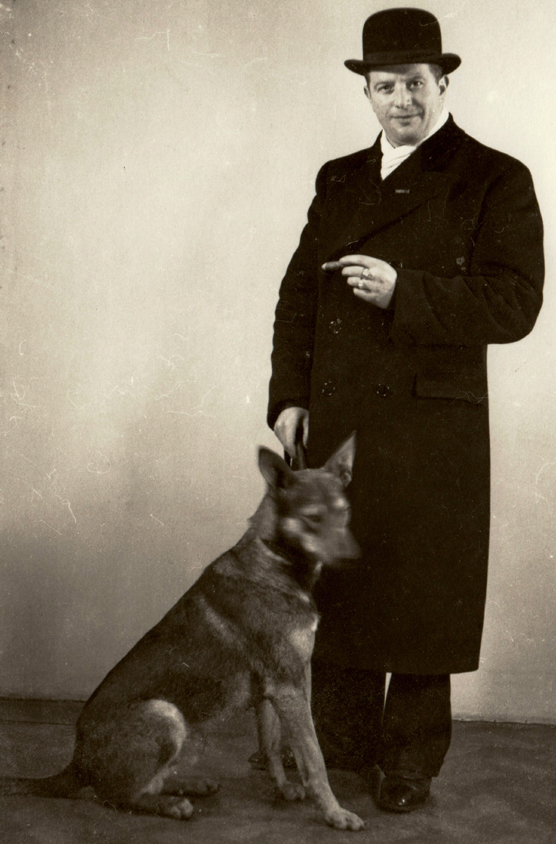What decisions were made by Jewish people?
During the November Pogrom Jewish people pro-actively attempted to protect themselves and the ones under their care. Though their choices were limited, many made courageous decisions.
Since the day of the attack on Vom Rath on 7 November, the Nazi press brimmed with threats against Jewish people. The atmosphere was tense and heavy with fear.
Harry Bibring recollects the build-up of fear and terror in the Jewish community in Austria on the day of the 9 November 1938. Which factors are predominant in his memory?
© National Holocaust Centre and Museum
In the face of brutal persecution, Jewish people did not suffer passively.
Hiding in plain sight
Men in particular were under threat of violence and arrest. Some found themselves shelter with friends or neighbours. If there was nothing recognisably Jewish about their appearance, they were able to blend into the crowd. They walked the streets or travelled on the underground. The anonymity of the city afforded them protection.
How does the father of Ruth Barnett avoid arrest during the night of the Pogrom? At what price does this come for him and his son? Robert Michaelis was a young successful judge before he was forced out of office in 1933 by Anti-Jewish legislation. He spent years in exile before he returned to Germany after 1945. He resumed his work as a judge and fought for the reparation of Nazi crimes.
© National Holocaust Centre and Museum
Choices of Jewish women
Many women heroically faced humiliation, violence and murder. In the mistaken belief that they would not be a prime target, they stayed behind with small children and vulnerable family members that were unable to leave the house and hide.
Ruth David recollects a shot through the window. Men with axes storm the house while children scream in panic. It’s a terrifying scene. Ruth’s mother is alone with the children and two handicapped family members. What does it say about her that she did not flee in terror?
© National Holocaust Centre and Museum
Appealing to common values
For a large number of Jewish Germans, it was inconceivable that they were no longer accepted by their compatriots as members of the German nation. They appealed to common values especially the patriotism of World War One and their merits as Jewish soldiers to stop the atrocities.
Fredy Markreich represented a prime example of the successful integration and emancipation of Jewish Germans. Might this have been the reason why he also was a prime target of the SA and one of the first to be arrested during the Pogrom?
© National Holocaust Centre and Museum

Depicted is Fredy Markreich at the beginning of the 1930s. He had served in the WWI and received various military honours. His family owned a successful textile business in Lingen. You can see his cheerful demeanour and socially he was well respected in the community.
© Stadtarchiv Lingen